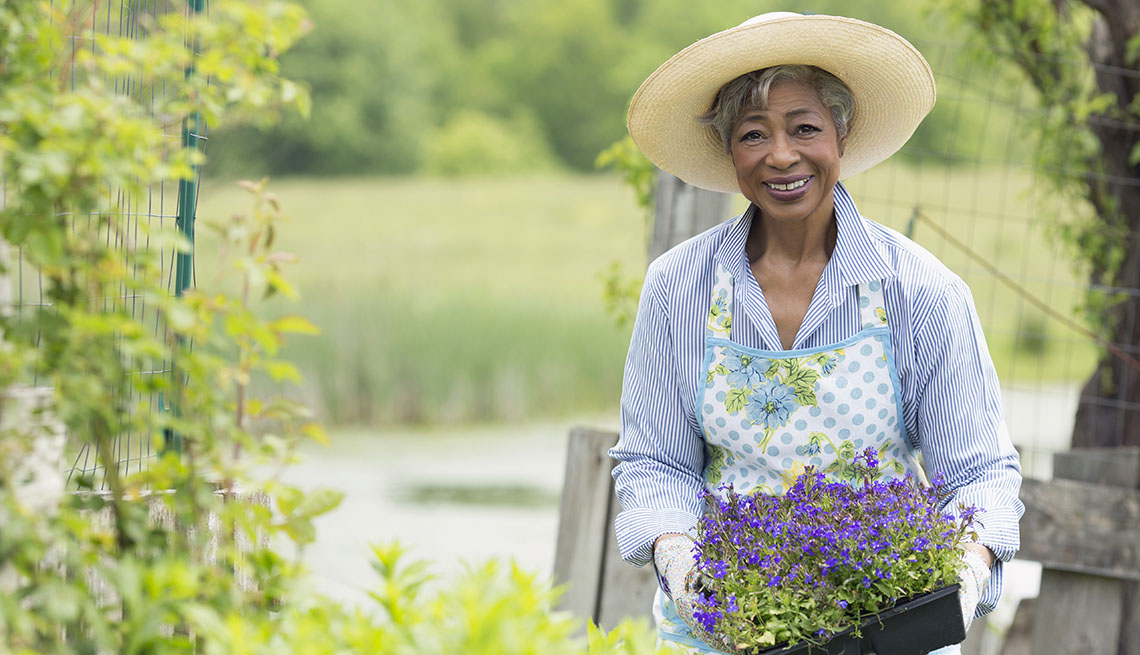Expanding Environment-friendly Thumbs: a Beginner's Trip Into the World of Gardening
Are you anxious to get your hands filthy and begin growing your own yard? Look no further! In this post, we'll take you on a beginner's journey right into the globe of gardening. You'll find out about choosing the right plants, understanding soil and garden compost, and necessary gardening devices. We'll also show you watering and fertilizing techniques and exactly how to manage usual yard insects. Prepare yourself to grow your green thumb and watch your garden thrive!
Choosing the Right Plants
You need to assess your horticulture space and determine the number of plants that will certainly fit pleasantly. Step the measurements of your yard beds or pots and compute the available space. Consider the fully grown dimension of the plants you mean to expand.
As soon as you have a clear concept of your horticulture room, it's time to pick the ideal plants. Certain plants thrive in complete sun, while others choose partial shade. This will help you select plants that are matched to your details problems.
If you're new to horticulture, decide for plants that are very easy to expand and need minimal maintenance. Pick plants that have a much shorter maturation period if you live in a region with a shorter expanding period.
Understanding Soil and Compost
Dirt is the foundation of your yard, offering nutrients, water retention, and assistance for your plants. It is essential to have a good understanding of your dirt kind, whether it is sandy, clayey, or fertile, as this will identify the kinds of plants that will certainly thrive in your yard. Remember, a abundant and healthy and balanced dirt is the key to a successful garden, so take the time to comprehend your dirt and include garden compost to guarantee your plants grow.

Crucial Horticulture Tools
An excellent set of horticulture gloves is an essential to safeguard your hands from thorns, irritable plants, and dust. A garden tube or watering can is essential for keeping your plants moistened. A durable set of trimming shears or secateurs is vital for cutting and shaping your plants.
Watering and Fertilizing Methods

Dealing With Common Garden Pests
As a novice gardener, you may encounter usual yard parasites that can inflict mayhem on your plants. These parasites can vary from bugs like beetles, aphids, and caterpillars, to tiny pets like rabbits and squirrels. It is necessary to be able to identify and deal with these insects successfully in order to secure your plants and make certain an effective yard.
Among the initial steps in taking care of garden pests is to frequently check my site examine your plants for any signs of infestation. Seek chewed fallen leaves, openings in the vegetation, or the existence of tiny bugs. If you find any parasites, it is necessary to take activity immediately to avoid them from spreading and creating additional damage.
There are numerous methods you can use to regulate garden insects. In addition, there are organic parasite control sprays readily available that can assist hinder and hop over to these guys eliminate common yard pests.
Remember, prevention is essential when it pertains to managing yard pests. Maintaining your yard free and tidy of particles can help in reducing the likelihood of an infestation. Routinely eliminating weeds and dead plants can likewise help eliminate hiding places for pests.

Final Thought
By choosing the right plants, comprehending dirt and garden compost, using necessary gardening tools, and grasping watering and feeding strategies, you have set yourself up for success. Do not neglect to remain vigilant in dealing with typical garden bugs to guarantee your plants grow.
Soil is the foundation of your garden, offering nutrients, water retention, and assistance for your plants. It is vital to have a good understanding of your soil type, whether it is sandy, clayey, or fertile, as this will certainly determine the types of plants that will prosper in your yard. Bear in mind, a fertile and healthy dirt is the vital to an effective yard, so take the time to recognize your dirt and include garden compost to useful link guarantee your plants grow.
As a newbie garden enthusiast, you might run into usual yard bugs that can create mayhem on your plants. It's crucial to be able to deal and determine with these bugs properly in order to protect your plants and guarantee a successful garden.